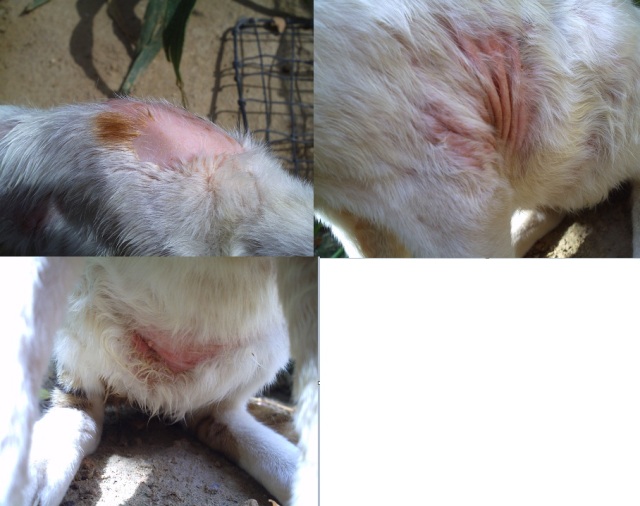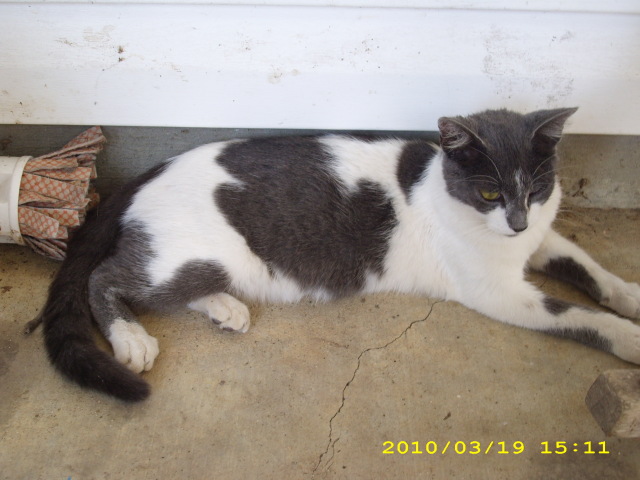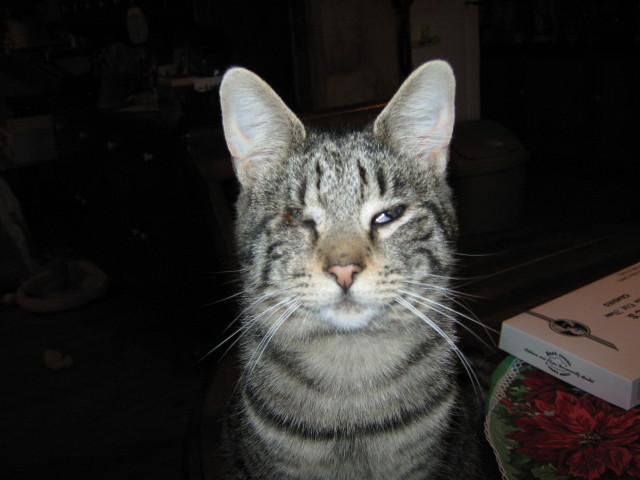QuestionHi
Our cat is 1/4 siamese, 3/4 tabby. She is 18.5 yrs old. She has a lifelong problem with howling which is getting worse with age and is now driving the whole family nuts! Personality seems 100% siamese (I've had siamese before). Very loving, intelligent and cuddly with family, but she wants what she wants and if she doesn't get it she starts a very loud howl. If given attention (patting, carrying) she will stop, but the minute we leave her she starts again. Also, sometimes impossible to tell what she wants. She has certain times she is more likely to howl each day and it's difficult to distract her, even if we try to prevent an episode. We have tried giving her what she wants (as far as we can figure out) and also tried ignoring the howling, + tried putting her outside when she does it, nothing is working.We got her very young and I think there is a degree of 'separation' issue. Also, with age, I wonder if she is losing the plot a bit, e.g howls when she wakes up, ? not sure where she is any more. She now spends maybe 50% of her waking time howling if she is not getting 1:1 attention. The vet has no suggestions, mentioned Prozac and then said not worth trying. She is healthy for her age. Looks good - fur, weight etc. Has mild heart murmur and takes 1x thyroid pill + 1x arthritis drop each day. I know Siamese are talkative, but this is over the top. She sounds really distressed, but the vet can't find any problem and she's done it all her life, it's the increased volume and frequency that's getting to us.
Thank you for your advice.
AnswerHi, Susan. I think you've answered your own questions! I'm no vet or animal behaviorist, but it sounds to me like one of two things - separation anxiety, or dementia (called Cognitive Dysfunction in cats).
While I'm not surprised by your vet's attitude toward using an antidepressant, I have to say I disagree. A lot of vets still don't take these drugs seriously because it has only been in recent years that they have been used to treat cats. However, cornered with no other possible treatments, more and more vets are willing to give them a shot, and results are surprisingly positive. I have used Prozac in 2 of my cats. It works and it has no side effects. The one drawback is its cost - about $50 a month where I live. There are other treatments like Buspar, Valium and Elavil that may be less expensive. Some of them have sedative effects when first started, but this may actually be a positive thing for restless cats like yours.
I don't know that it would help in a situation as severe as yours, but there is a calming treatment, which uses synthetic facial pheromones to reduce anxiety. It's called Feliway and is available in a spray bottle or plug-in diffuser called Comfort Zone. These are available at pet stores, some vets and through their website, www.felineway.com. I have used these products and have had pleasing outcomes.
Cognitive Dysfunction (CD) is being seen in many more cats than before, since they are living longer than ever. It's pretty well the same thing as human Alzheimer's, caused by the same thing - plaque buildup in the brain.
Signs of CD include overvocalization as the first complaint, followed by litter box problems, social withdrawal, disorientation, hallucinations, not recognizing familiar people and unprovoked aggression in a few cases.
There isn't any test for CD, really, so it's diagnosed when no other diagnosis can be made. Recently, one of the drugs that has been used to treat Alzheimer's disease in humans has been prescribed for use in cats and dogs. It's l-deprenyl, sold under the brand name Anipryl for dogs. It hasn't been labeled for use in cats, yet, only because clinical studies haven't been performed to prove its efficacy. But many vets are prescribing it for cats off-label, and the results are encouraging. In quite a few cases, it reverses symptoms of CD. In the majority of cases, it significantly slows the progression of the disease.
I would recommend consulting your vet about these possibilities. If you can find one, it would be beneficial if you spoke with a Veterinary Behaviorist, who will be especially up-to-date on treatments, both medicinal and behavioral modification techniques.
I wish you the best!
Jessica

 my pregnant cat has given birth to one dead kitten
Question
l
my cat has been nesting for last 2 days, whe
my pregnant cat has given birth to one dead kitten
Question
l
my cat has been nesting for last 2 days, whe
 Feline Nutrition
QuestionQUESTION: I also rescue feral cats and kittens
Feline Nutrition
QuestionQUESTION: I also rescue feral cats and kittens
 wounded cat hair loss
Question
wounded cat
my one year old cat was bitten by
wounded cat hair loss
Question
wounded cat
my one year old cat was bitten by
 My cat, Spots
QuestionQUESTION: Hi. My cat Spots is a wonderful cat.
My cat, Spots
QuestionQUESTION: Hi. My cat Spots is a wonderful cat.
 What breed is Jerome the Cat
Question
Jerome the Cat
Hi Karen.
Last summer on my da
What breed is Jerome the Cat
Question
Jerome the Cat
Hi Karen.
Last summer on my da